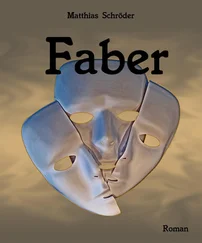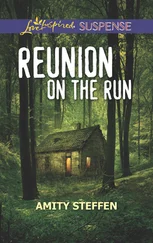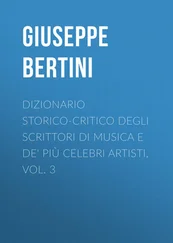I think what he learned was that he would always be sad.
A man steps into the room in which I’m sitting and says, “Your father is dead.”
“The hell he is,” I say.
“He died three years ago. Here is the death certificate. Otto Schroder. Isn’t that your father?”
The room I’m sitting in is dim, with no natural light. I bend toward the paper he slides toward me without touching it, despite the fact that my handcuffs were removed hours ago.
“No,” I say.
“No? That’s not your father?”
I stare at the paper.
“No,” I say again.
The man sits across from me. “Do you know there’s a warrant for your arrest in three states? New York. Vermont. New Hampshire. Depending on the statutes, you could get charged with kidnapping in the second degree. The maximum for that is twenty-five years.”
I say nothing. My head begins to spin.
I have been sitting relatively motionless in a holding room somewhere in the basement of the Nashua Street Jail, with no water, no food, and no human contact. When they first brought me into this building, I was ushered into the room with a virtual cortege, a crowd of people. This graying man was not among them.
“Who are you anyway?” I say.
“Lieutenant Stavros. Who are you ?”
“What sort of name is Stavros?”
“Greek. What sort of name is Schroder?”
“German,” I say. “I’m German. A resident alien. Isn’t my confession sort of just a formality at this point? I mean, you have my passport, don’t you?”
“Tell me about Erik Schroder. Tell me why you’re running from him.”
“Sure.” I shrug. “I’ll tell you everything.”
“What?” The man seems caught off guard.
“I’ll tell you whatever you want to know.”
“OK. But could you wait a minute? I need to go get a couple people.”
“Sure. Go ahead.”
The man stands. “I’m sorry about your father,” he says. “Would you like me to get the chaplain for you? We’ve got a good one.”
“Why would I? I’m totally fine. I don’t believe your document is authentic.”
The man looks baffled. “You don’t?”
“No. It’s some kind of ploy. Psychological torture. I want its authenticity confirmed by an independent party. And,” I say, raising a finger, “I want to speak to my daughter.”
The man hesitates for a moment.
“Are you serious?” he asks.
“Yes, I’m serious.”
He’s looking at me closely. “I’ve got to be honest with you. It’s going to be a hell of a long time before that happens. Your daughter was the victim of a crime you committed.”
“That’s not how I see it.”
“It doesn’t matter how you see it.”
“I’m her father .”
“You’re in jail. You have the rights of a person in jail. Those rights aren’t the same as the ones you had yesterday.”
I pull myself up as straight as possible.
“Then I would like to speak to a lawyer,” I say. “A good one. Your best.”
The man sighs and reaches for the door.
He leaves.
He does not come back for a long, long time.
THE SILENCE OF MOURNING
Have you ever heard of Bob Kaufman? He was a poet no one’s ever heard of. He once took a legendary vow of silence that lasted ten years.
Born to a Catholic African-American mother and a German Orthodox Jewish dad, Bob Kaufman lived a revolutionary and drug-addled life as a beatnik in San Francisco in the 1950s and ’60s. Although his biography is full of disappearances and lacunae, some of us know him as the author of Solitudes Crowded with Loneliness or maybe the Abomunist Manifesto ? He was always writing and reciting poetry in unlikely places. Rooftops. Street corners. The day President Kennedy was shot, Bob Kaufman took a vow of silence. For ten years, he spoke to no one. He recited no poems. Nobody even knows where the hell he went.
The day the Vietnam War ended, Bob Kaufman walked into a coffee shop and recited a poem, gifting his most glorious moment to a bunch of tired strangers. After that, his life cycled through periods of methadone addiction, poverty, and creative inspiration. It was as if he was trying to erase his life as he lived. He wrote his poems on napkins and newspapers, things that blow away. “I want to be anonymous,” he once declared. “My ambition is to be completely forgotten.”

OK,” my court-appointed lawyer says. “It’s true, about your father. He passed away three years ago. I suppose with no forwarding address for you — with no other living relatives — Look, it’s no one’s fault. It’s just something that happened. He died of natural causes. The medical report says complications from pneumonia. He was seventy-two.”
I say nothing. My lawyer adjusts his seat. He’s an absurdly young guy. Slim, olive skinned. Pakistani, I decide. A public defender, fresh out of law school. They’ve called him in to get my extradition going, to get me moving along. After that, I’ll need to find a new lawyer — not Thron, but somebody more qualified to deal with somebody like me. Somebody with lots of layers. I look at my lawyer’s fingernails (immaculate), his tie (silk), and finally his face, which stares back at me in abject receptivity. But I’m looking at him from the bottom of a well. There is nothing in the world somebody so young and pleasant can do for me.
“I’m sorry,” he says, finally. “My office is trying to track down your father’s effects. Whatever is left belongs to you. Maybe seeing these things will give you some resolution?”
I say nothing. My lawyer looks uncomfortable. I feel bad for him. His youthful looks must piss him off sometimes.
“As for your estranged wife,” he continues, “she’s, well, distraught. She wants to cooperate fully with the prosecuting authority, which is Albany County, where you’ll be heading, just as soon”—he looks over his shoulder, as if my custodian, the stork of the criminal justice system, has missed his cue to enter—“just as soon as someone is available to drive you. There will be a preliminary hearing. And your wife will have to testify at that hearing. But you could always hope”—my lawyer pauses, groping for the bright side—“that when she calms down — when she becomes less angry — she might not want you put away forever. I mean”—my lawyer laughs self-consciously—“you can’t be put away forever. Twenty-five years is the maximum for a class-E felony. Of course, that sounds like forever. A charge of custodial interference — instead of kidnapping — has a maximum sentence of four years. Much better, right?”
I stare back at him.
“There are potential fraud charges. You are living under a false name. That puts you under immediate suspicion. Truth be told, you might have to defend yourself twice. Both as Eric Kennedy, and as — as”—he checks his notes—“Schroder.”
I clear my throat but do not reply.
“Your participation is going to be important. So your lawyers can do everything for your defense. You need to paint the whole picture here. Of your marriage and your family life and most especially your past—” He pauses, looking at me closely, waiting. “You could get as little as a year if your story holds water. You told investigators yesterday that you were willing to give your statement. Then it appears you changed your mind.”
I say nothing. I consider explaining: Listen, it’s not personal. I have simply taken a vow of silence. I will not utter a word until I hear from my daughter or my wife. Someone I can trust. Someone I know .
Читать дальше













